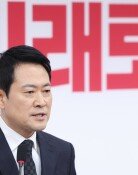Merit-based bonus for workers in N. Korea
Merit-based bonus for workers in N. Korea
Posted May. 29, 2013 06:21,
After three-time access bans on the Kaesong Industrial Park in North Korea were lifted in 2009, the North unilaterally demanded South Korean factories in Kaesong raise the minimum wage for North Korean workers to 300 U.S. dollars. Since the guideline for minimum wage in the complex, which was initially set at 50 U.S. dollars, was an annual hike of 5 percent, the amount was not acceptable at the time. The companies said that they could raise the wage up to 200 dollars only under the condition that they would pay different wages based on performance of North Korean workers and demanded the right to personnel management to freely hire North Korean workers. The move was an offer to introduce a kind of merit-based compensation system and constituted a counter-offer to test capitalism in the North. After all, the North withdrew its demand to hike the minimum wage to 300 dollars. At present, the average monthly wage of North Korean workers in the complex amounts to about 130 dollars.
A test with a merit-based pay system in the North was successfully conducted with the so-called choco pie effect. Since the companies were not allowed to pay night-time shift or overtime allowances, the workers were provided with six Choco Pies (marshmallow-stuffed bun coated with chocolate) per day, a move that drastically boosted motivation in the complex. The measure generated the effect of choco pie, which virtually equaled cash. In the North, Choco Pie is the most popular item at Jangmadang, or private markets. The British newspaper Guardian carried a news report on the success of Choco Pie, saying it rose to legendary status.
North Korea, which had been allergic to penetration of capitalist factors into its socialist system, reportedly introduced in April a system that factories and companies set wages for their workers on their own. It is a revolutionary change from the past situation where individual workers were not paid more than the standard amount no matter how hard they worked because the government set wages for workers.
The figure who triggered this revolutionary shift is Pak Pong Ju who returned as prime minister in April. On July 1, 2002, Pak spearheaded the Improvement measure in economic management," which called for reforms on the rationing system and reinforcements of management at factories and companies. But he resigned in 2007 to for skyrocketing inflation stemming from supply shortage of materials. Pak should know better than anyone else that the fundamental cause of the failure 11 years ago was mere mimicking of reform, in lieu of recognizing the principle of market economy. Would it be too much to expect that Pak dares to say, It is a strong commitment to reform and market opening, stupid! to Kim Jong Un, who has no hesitance to dismiss even a vice marshal as he pleases.
Editorial writer Ha Tae-won (triplets@donga.com)




![[속보]이스라엘 “이란 공격” 국가비상사태 선포…테헤란 폭발음](https://dimg.donga.com/c/138/175/90/1/wps/NEWS/IMAGE/2026/02/28/133440981.1.gif)


